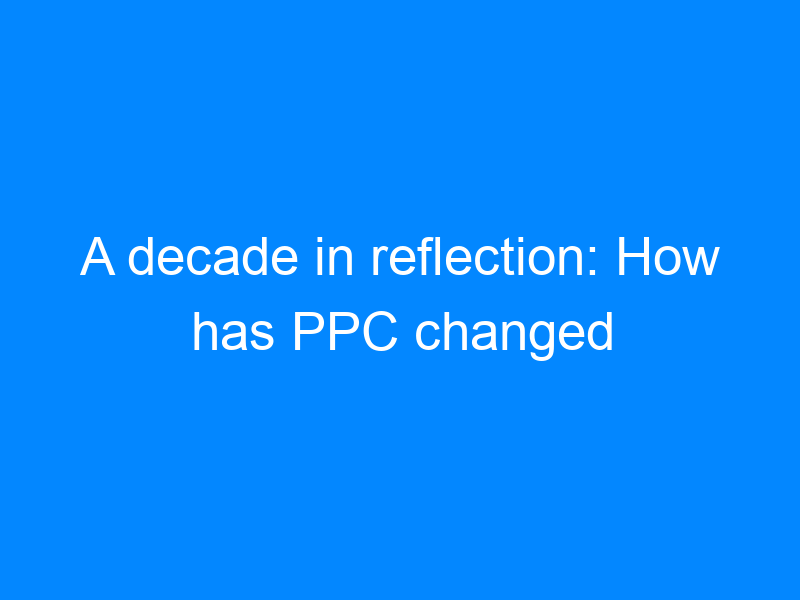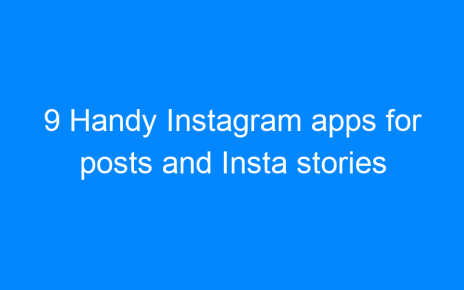Digital marketing is an entire process that involves multiple subsections like content marketing, SEO or search engine optimization, PPC ads, email marketing, and multiple other processes. Businesses hire different agencies for separate purposes or join hands with an agency that is capable of providing all these services efficiently. Usually, businesses look up to their partner agencies for rapid enhancement of traffic on their websites and subsequent conversions. PPC ads campaigns can help businesses get a huge boost in terms of relevant traffic making to their website. This is why businesses are more considerate about PPC ads and look for a reliable PPC agency Melbourne wide and across Australia to address the deficiency in terms of traffic on their website. The term PPC is quite popular nowadays and almost every business knows this term and basic process. However, this was not so popular before the last decade but due to the changes or rather betterments in the PPC process, individuals and businesses know it and are aware of its effectiveness in driving the relevant traffic to a website. We have gathered some details about the changes that happened to PPC through the 2010s, further details about the changes in PPC through the 2010s are listed below in the form of a timeline:
2010, Google Introduces Remarketing:
Table of Contents
The year 2010, the very beginning of the decade, marks the release of remarketing to all advertisers by Google. Remarketing enables advertisers to show ads to users who have already visited their website. This became possible because of the ability to track users who visited the website in the past, this made it easier for advertisers to attract visitors back to their website through a much cheaper and cost-effective option as compared to paying for normal search ads. Since its introduction, remarketing has become an important element of PPC and works as an efficient tool to target the audience that is actually interested in a specific category of products or services.
2011, Addition of Negative Keywords Lists:
Google introduced an exciting feature of negative keyword lists. Before the introduction of this useful feature, PPC professionals were setting negative keywords for every campaign manually. However, the introduction of negative keyword lists made their job easier and helped them avoid huge headaches as they were able to set a list of negative keywords across a variety of campaigns they were managing at the same time with a simple click of a button. This list addition helped them save a lot of their valuable time and effort.
2013, The Release of Enhanced Campaigns by Google and Twitter Ads API:
2013 was indeed a very happening year for the PPC world as it saw a number of changes and updates that made the job of PPC professionals even easier. Google rolled out a new feature in the name of enhanced campaigns which enabled PPC managers to target users over multiple devices and condensing many campaigns into a single one which was much easier in terms of management, reducing the number of required ads to allow PPC professionals to increase the engagement of their ads. Meanwhile, another PPC player, Twitter also released Twitter Ads API. This API made it easier for PPC professionals to manage and create ads for Twitter.
2015, Call-only Campaigns by Adwords:
The year 2015 saw another useful update that changed the landscape of PPC advertisement for Mobile devices as previously the mobile users had to go on a landing page before calling a phone number which increased the drop-off rate from the clicks by users. However, with the introduction of call-only campaigns by Google, mobile users were able to directly make calls to the given phone number in the ads without any further ado.
2018, The Ban of Cryptocurrency Ads by Google & Facebook and Rename of AdWords:
2018 will be remembered by the PPC world because of the bans imposed by big PPC players like Google and Facebook on the cryptocurrency ads because of the identification of a large number of deceptive ads. Furthermore, Google also changed the name of its famous PPC platform from AdWords to Google Ads, however, it is still often referred to as Google AdWords.



